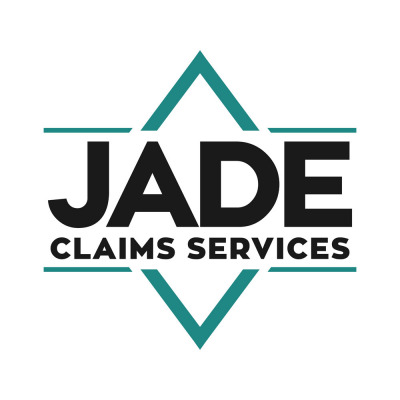When disaster strikes and your home suffers damage, understanding the value of your loss is crucial for securing a fair insurance claim settlement. In Minnesota, the insurance appraisal process plays an important role in resolving disputes between homeowners and insurance companies regarding the cost of property damage. If you and your insurer disagree on how much a claim is worth, an appraisal can be a useful tool to ensure that you receive a fair payout. But what exactly does the process entail, and when should you consider using it?
Understanding the Insurance Appraisal Process
An insurance appraisal is a structured process used to determine the amount of loss or damage to insured property when the policyholder and the insurer cannot agree on the claim’s value. It is typically outlined in most homeowners’ insurance policies and allows both parties to have an independent evaluation of the damages. If either the homeowner or the insurer invokes the appraisal clause, both sides must select independent appraisers to assess the damage. These appraisers then attempt to agree on a fair loss amount. If they cannot reach an agreement, a neutral umpire is appointed to review both assessments and make a final decision, which is binding.
Unlike the standard claims process, which is primarily controlled by the insurance company’s adjusters, an appraisal brings in third-party experts who can provide a more impartial evaluation. This is particularly useful when an insurance company offers a lower settlement than expected, as the appraisal process ensures that an independent assessment is taken into consideration.
When Is an Appraisal Necessary?
A home insurance appraisal is not required for every claim but can be valuable when there is a significant disagreement between the homeowner and the insurer over the cost of repairs. One common scenario is when the homeowner receives an estimate from a contractor that is much higher than what the insurance company is willing to pay. If the insurer underestimates the true cost of repairs, an appraisal can provide an unbiased second opinion.
Another situation that often calls for an appraisal is when there is a dispute over the scope of the damage. For example, a homeowner may believe that storm damage has impacted their entire roof, while the insurance company may only want to cover a partial repair. Similarly, disagreements about depreciation and material matching—such as whether the new materials should match the undamaged portions of the home—are common reasons homeowners seek an appraisal.
How Minnesota Insurance Laws Affect the Appraisal Process
Minnesota has specific statutes that govern the appraisal process, ensuring that policyholders have a fair opportunity to challenge claim disputes. Under Minnesota Statute §65A.12, either the homeowner or the insurance company can demand an appraisal when there is a dispute over the loss amount. However, the request must be made within a specific time frame, usually 20 days from when the disagreement is recognized. If one party fails to appoint an appraiser within this time frame, they may forfeit their right to the process, allowing the other party to proceed with legal action instead.
Additionally, appraisers in Minnesota must adhere to the Uniform Standards of Professional Appraisal Practice (USPAP), ensuring that their evaluations are conducted fairly and transparently. Unlike in some states, Minnesota appraisers are also permitted to determine the cause of the damage in addition to estimating the cost of repairs. This is a crucial benefit for homeowners, as it allows appraisers to establish whether a loss was actually caused by a covered event, rather than relying solely on the insurance company’s determination.
The Benefits of an Insurance Appraisal
Choosing to go through the appraisal process can provide several benefits. First, it is often a quicker and less costly alternative to filing a lawsuit against an insurance company. Rather than waiting months—or even years—for a court resolution, an appraisal typically takes a few weeks to a few months to finalize. Additionally, because appraisers are industry professionals with expertise in home construction and property valuation, they can offer a more accurate assessment than a claims adjuster who may be working on behalf of the insurer.
Appraisal also removes much of the stress and frustration that comes with fighting an insurance company over a claim. Instead of repeated back-and-forth negotiations, the process provides a structured framework to reach a fair settlement. Homeowners who feel that their insurer is undervaluing their claim can use the appraisal process to advocate for a more reasonable payout without the need for extensive legal action.
What Homeowners Should Consider Before Requesting an Appraisal
Before moving forward with an appraisal, it is important for homeowners to review their insurance policy to confirm that an appraisal clause is included. Most standard policies have this clause, but coverage details can vary. It’s also essential to understand that while an appraisal determines the amount of loss, it does not address whether the damage is covered under the policy—coverage disputes must still be handled separately, often through legal means.
Additionally, homeowners should attempt to communicate with their insurer before initiating an appraisal. In many cases, simple errors or miscommunications can be resolved through discussion without needing to invoke the formal process. However, if negotiations stall and the insurer refuses to offer a fair payout, then an appraisal may be the best option to ensure a just resolution. Consulting with a public adjuster or an attorney who specializes in Minnesota insurance claims can also help homeowners navigate the process and determine the best course of action.
In Conclusion
The insurance appraisal process is an essential tool for homeowners who face disputes over their claims. By allowing an independent evaluation of property damage, it helps ensure that homeowners receive fair compensation for their losses. In Minnesota, the legal framework around appraisals provides added protections for policyholders, giving them a structured way to challenge unfair settlements.
